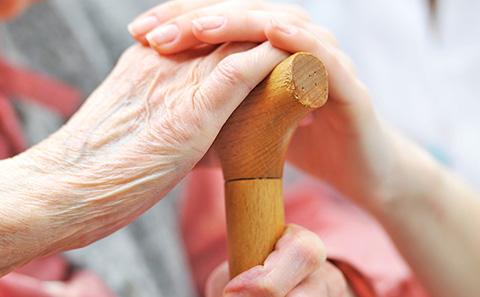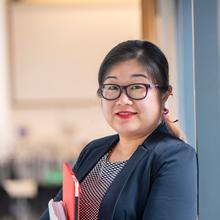Finding solutions for silver shoppers
Improving the retail environment for older people in the UK and China.
Supermarkets are one of the most important types of retail outlet that impact on the day-to-day lives of older people, and with an ageing population, it is ever more pressing to ensure that they are easier for older people to use. In fact, according to the United Nations, the number of people worldwide aged 60 or over is forecast to more than double by 2050.
Dr Yuanyuan Yin, Lecturer in Design Management at the University’s Winchester School of Art, is leading the first cross-cultural investigation of older people’s retail experience in the UK and China – two of the world’s largest economies.
China is a key market for retailers, yet up until now there has been very little research on how the older generation uses them.
We are exploring the shopping experiences of elderly consumers across the two cultures, to discover if it is possible to develop universal design solutions to enhance the future retail environment for both the Chinese and UK markets.
Consumer insights
The research team carried out a detailed study of customers’ shopping behaviours and experience at three locations in both the UK (Northumberland, Dorset and Shropshire) and China (Shangdon, Sichuan and Jiangsu), to take into account any regional differences.
They followed the whole shopping journey of each of the 30 participants from each country – starting from when they decide to go shopping, to when they have put their groceries away at home. Using diary cards for the participants to record their experiences during their shopping trip, as well as audio and video recordings and questionnaires, they were able to build up a detailed picture of each of the participants’ shopping behaviours and experiences.
The findings highlighted several cultural differences in shopping behaviours; for example, in China, the participants tended to go shopping every day for fresh fruit, and walked or used public transport for their journeys. Half of the Chinese participants said they had a computer but didn’t use it. By contrast, in the UK, most people did a weekly shop and 60 per cent used a car. “Computer use of UK participants was much higher than that reported in the literature, with 70 per cent saying they used a computer,” says Yuanyuan.
Innovations
From these insights, the team has come up with a range of solutions and products to help improve elderly people’s shopping experiences. These range from a vending freezer that deposits a chosen item directly into the trolley, to a robot basket that follows customers around and assists them during their shopping trips.
They have recently patented the first of these products – a prototype for an ‘iTrolley’. The iTrolley has an iPad as a control pad so shoppers can easily search, navigate, scan and make payment. Shoppers can put their own bag into the trolley, scan items on the iPad screen as they go, then simply check out using their iPad, pick up their bag and go. The next step will be to carry out consumer testing with this product.
“This project contributes our understanding of older customers’ shopping habits, experience, the problems and challenges they face during supermarket shopping in both the UK and Chinese markets.
A better understanding of their shopping behaviour, and the values and capabilities of this growing population, has implications for retail business strategy, social policy and future research on ageing and wellbeing.
Find out more about Dr Yuanyuan Yin's research
Links to external websites
- Four Shopping Stories of Older Chinese Customers
- Design for Future Facebook page
- Design for Future Twitter
The University cannot accept responsibility for external websites.
You may be interested in:

The challenges of ageing
Vaccinations could prevent against Alzheimer’s disease

Alzheimer's: managing the conversation
Speech as an indicator of dementia

Improving lives worldwide
Supporting the UN Sustainable Development Goals to improve lives around the globe.
